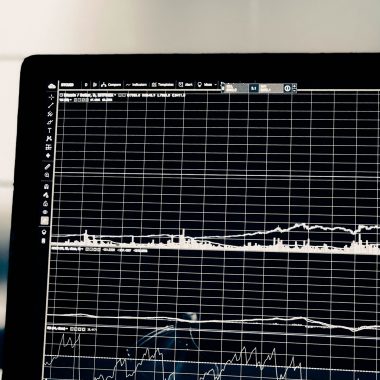In the span of a few days, the Reddit discussion forum has been the source of a new social truth: the collective actions of individuals has impacted the stock market. While the video game shop chain, GameStop, was one of the most shorted stocks on the S&P 500, a movement of new stock marketers managed to get a speculative hedge fund to fold. In doing so, they gained the support of Elon Musk, who seized the opportunity to undermine a historical adversary. Are we witnessing the birth of an ochlocracy and stock market populism?
GameStop, from a hopeless case to a new kind of euphoria
GameStop, an American company founded in 1984 under the name Baddage’s, sells video games in shops. The company was thriving and in 2008, for example, it purchased the French retailer Micromania. At the beginning of the 2010s, with the rise of online video game sales, GameStop’s sales figures began a sustained decline from 9.5 billion dollars in 2011 to 6.4 billion in 2019 (Statista).
The stock market price echoed this, with a relentless decline and an uninterrupted streak spanning six years. And then, on January 11, Ryan Cohen, co-founder of Chewy, an online pet food company, joined GameStop’s executive committee, bringing with him the hope of a company shift towards online sales. A spontaneous movement of small-time traders emerged in the r/WallStreetBets subreddit on Reddit, where users encouraged each other to buy GameStop shares. So much so that the stock doubled between January 12 – 14, 2021.
For several years now, the decline in GameStop shares has been accentuated by short-selling transactions carried out by hedge funds – in fact, it is the most shorted S&P 500 stock in 2020. Among the most active short sellers are Citron Research and, above all, Melvin Capital Management.
Twitter, the revenge medium
Melvin Capital Management is particularly known for being a historical short of Tesla shares, and its founder, Gabe Plotkin, has publicly congratulated himself. As Melvin Capital Management struggled, Elon Musk saw an opportunity for revenge and tweeted on 26 January “Gamestonk!!!”, relaying the link to the subreddit r/WallStreetBets – the tweet quickly went viral, reaching 243k engagements, including 41.3k retweets.
On Twitter, the trend exploded in the following days, mainly in the United States, with 239.3k publications generating 7.4 million engagements. On the stock market, the share price soared to $347.5 at the close on Wednesday evening, after recording a daily rise of 134%.
The trend on Twitter lasted several days in the United States, and eventually subsided late in the evening on January 27.
The shadow of “Gamergate”?
A mob movement across social networks, provoked by a billionaire lashing out at an opponent: the story is reminiscent of “Gamergate” (August 2014) The massive online harassment movement, primarily centred on two American journalists, against a backdrop of far-right ideological protest against alleged “collusion” between “liberal” journalists and the video game industry.
As with the GameStop controversy, the movement was amplified, in similar proportions, on Twitter(316k tweets in 72 hours) and was born on a discussion forum ౼ in this case, 4chan ౼ an exchange space pre-empted by American alt-right militants. As in the case of GameStop, the movement gained momentum on Twitter as influential personalities retweeted The first was Milo Yiannopoulos, an alt-right influencer who was definitively banned from Twitter in 2016.
“Gamergate” occurred at the same time as the vendetta led by Peter Thiel ౼ who co-founded PayPal with Elon Musk and founded Palantir ౼ against the media outlet Gawker, run by the co-founder of PayPal, all under the cloak of secrecy and through several intermediaries (see Conspiracy, Ryan Holiday, 2018). While there is no evidence that Peter Thiel was behind the ‘Gamergate’ movement, the militant actions of the gamegaters targeted Gawker as part of ‘Operation Baby Seal,’ a coordinated email campaign aimed at dissuading advertising agencies from hosting content on the media site in order to drive down its revenues.
The comparison between “Gamergate” and the GameStop controversy probably ends there. If Peter Thiel was involved, he never said so publicly, unlike Elon Musk. Moreover, it was not based on the same foundations, although a populist element seems likely to emerge out of the GameStop movement.
Activism versus activism, the birth of stock market populism?
A new kind of social phenomenon, where collective actions of individuals can impact the stock market and increase its volatility. Progresive American media outlets, such as the Associated Press, the New York Times or the Washington Post, were quick to interpret these facts as a struggle between David and Goliath .
An emerging narrative reinforced by the decisions of Citron Research and Melvin Capital Management to end their short positions in GameStop, after subsequently losing more than 5 billion dollars since the beginning of January.
A symbolic victory for the contributors to r/WallStreetBets, whose shares also went into the BlackBerry stock price… A move that had repercussions in the political sphere, with Democratic Senator Elizabeth Warren calling on Twitter for the Security Exchange Commission (SEC) to exercise more control over the actions of hedge funds, which have treated the stock market “like their own personal casino.”
On r/WallStreetBets, a user posted an “Open letter to Melvin Capital, CNBC, Boomers and WSB [WallStreetBets]”. It got over 78.5k upvotes, and recounts the user’s family troubles that resulted from the 2008 financial crisis and praises the “millennial” uprising against “obscene market manipulators” and the media “promoting institutional agendas.” Is this the birth of stock market populism?
By Alexandre Kahn , consultant at Antidox










